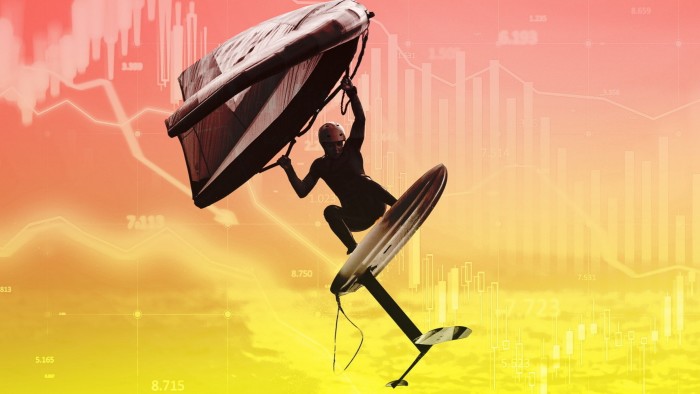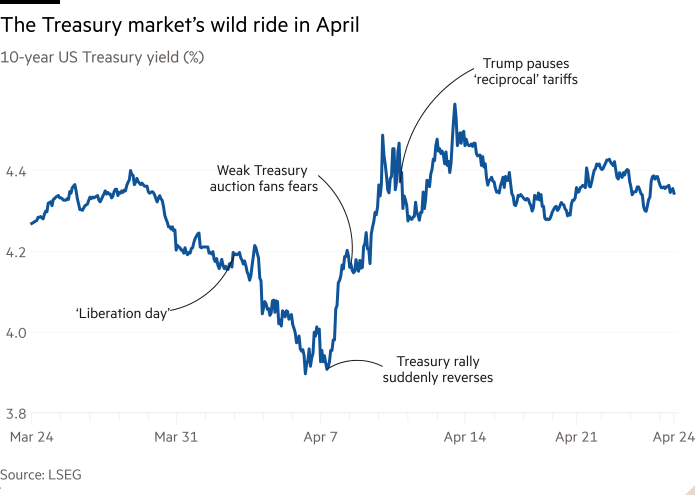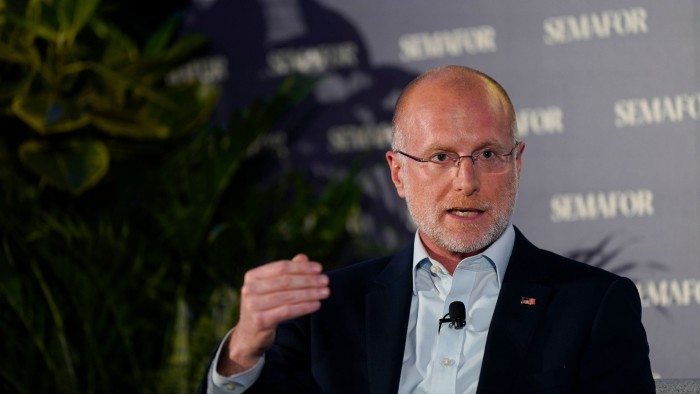Milei taunts economists as Argentina’s peso defies predictions of sharp fall

Unlock the Editor’s Digest for free
Roula Khalaf, Editor of the FT, selects her favourite stories in this weekly newsletter.
Argentina’s peso has defied many analysts’ expectations and avoided a sharp fall following the relaxation of its fixed exchange rate this month, prompting libertarian President Javier Milei to mock economists who had warned of a much bigger drop.
The peso has swung dramatically since its April 14 partial float, before which it was set at 1,068 to the dollar by the government, but on Thursday traded at 1,175. That is well above the new 1,400 lower limit that the central bank has set, and Milei has predicted it will soon hit the 1,000 upper limit.
On Monday, when the peso was strengthening close to its pre-float value, Milei criticised Martin Rapetti, director of economic think-tank Equilibra who had predicted a sharp devaluation, on X, calling him an “econo-swindler . . . who devotes himself to poisoning the population’s blood”.
Rapetti told the Financial Times the post was “an attempt to intimidate” economists who questioned Milei’s policies and “inappropriate for the president of a serious, democratic country”.
Economy minister Luis Caputo also expressed frustration with those who had predicted a greater weakening of the peso.
“We’d wait for a wave of apologies from colleagues and journalists apologising for telling people we were devaluing [when the currency float was announced],” he said on X. “But I’m sure it won’t come.”
In contrast to earlier this month, the central bank is not intervening in the market to prop up the peso, under the terms of Milei’s new $20bn loan deal with the IMF.
The IMF has asked the central bank not to sell its precious reserves of hard currency to strengthen the peso unless it falls to 1,400 to the dollar, and has instead encouraged it to buy greenbacks to build up reserves. Milei said last week the central bank would not buy dollars “until the peso reaches 1,000”.
While the peso has weakened in recent days, most analysts now agree that conditions are on Milei’s side to keep the currency in the lower half of its band for the next few months, including a seasonal boost of dollars from Argentina’s massive April-June soya harvest.
Argentina’s 29 per cent benchmark interest rate remains high enough to encourage investors to engage in so-called carry trades, in which they borrow in dollars and exchange them for pesos to buy local assets and collect the interest. The central bank last week relaxed restrictions on foreign investors in order to encourage such trades.
Meanwhile, Milei has sharply reduced the central bank’s use of money printing and reiterated his pledge to deliver a budget surplus in 2025, which has helped investor confidence.
“They have put many variables in play that increase the offer of dollars in the market and reduce demand . . . including Milei’s signal that the peso will hit the upper limit,” said Fernando Marull, head of Buenos Aires-based economic consultancy FMyA.
He added that the peso would remain volatile in the coming weeks as the market “tests supply and demand” for a currency whose exchange rate had been controlled by the government for more than five years.
A crucial factor will be how fast agricultural exporters opt to sell their wares. A stronger peso encourages exporters to hoard crops, as it means they get fewer pesos for their export dollars. But Milei has warned that a temporary cut in export taxes will expire in June and urged them to sell now.
Pressure on the peso may intensify in the latter half of the year as export dollars dry up and Argentina’s October midterm elections approach. Investors traditionally convert their peso assets to dollars ahead of polls.
The smaller-than-expected fall in the currency has led some economists to scrap predictions that inflation would jump once currency controls were lifted. Curbing price pressures is central to Milei’s campaign for the midterms.
“I don’t see a serious problem with inflation unless the peso drops a lot,” said Rapetti of Equilibra.
But he said it was too early for the libertarian to declare victory in maintaining a stronger peso, given that the exchange rate has dramatically appreciated over the past year and remained far above its historic real- terms average.
“I still believe that to put the country on a path that allows both a growing economy and growing central bank reserves . . . Argentina needs a weaker exchange rate,” he said. “The government has very cleverly managed to postpone that.”




